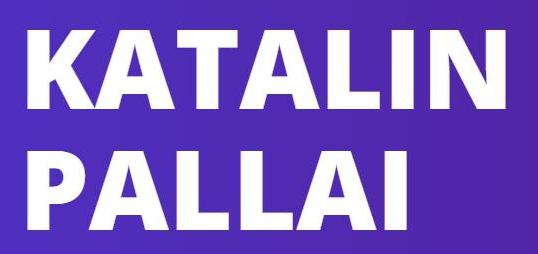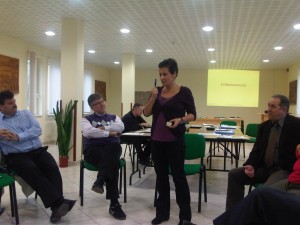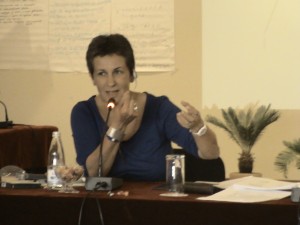Intergity management education, Hungary, since 2012
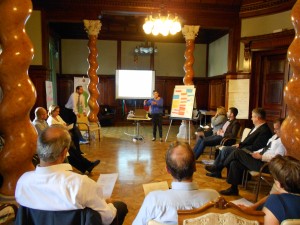 In the frame of a large EU financed project on Corruption Prevention, implemented in cooperation between the Hungarian National University of Public Service and the Ministry of Public Administration, I was commissioned to develop training curricula for integrity advisors and civil servants. On the basis of the curricula the largest further education program of the Hungarian public administration is being implemented: more than 800 senior civil servants and 8500 civil servants (10 % of the civil service) were educated on corruption prevention and on approaches to strengthen organizational integrity. I have also presented the training for a group of state secretaries, deputy state secretaries and government commissioners. The methodology I developed was peer reviewed by a high level international peer team and acknowledge as innovative even in the 2014 Anticorruption Report of the European Commission. On the basis of the method I also developed a course on integrity management for MA level university education. From 2014 the course will be part of the obligatory curriculum at the National University of Public Service and introduced on other Hungarian universities as well.
In the frame of a large EU financed project on Corruption Prevention, implemented in cooperation between the Hungarian National University of Public Service and the Ministry of Public Administration, I was commissioned to develop training curricula for integrity advisors and civil servants. On the basis of the curricula the largest further education program of the Hungarian public administration is being implemented: more than 800 senior civil servants and 8500 civil servants (10 % of the civil service) were educated on corruption prevention and on approaches to strengthen organizational integrity. I have also presented the training for a group of state secretaries, deputy state secretaries and government commissioners. The methodology I developed was peer reviewed by a high level international peer team and acknowledge as innovative even in the 2014 Anticorruption Report of the European Commission. On the basis of the method I also developed a course on integrity management for MA level university education. From 2014 the course will be part of the obligatory curriculum at the National University of Public Service and introduced on other Hungarian universities as well.
In 2014 in the frame of the life-long education program for civil servants I designed a one day long Public Ethics training methodology for staff members and a 2,5 days Integrity management curriculum for public sector leaders and trained the trainers for the trainings. Due to the good reputation of the previous integrity trainings presented during the earlier mentioned EU sponsored project, a large number enrolled already in the first months. According the forecast by the end of 2014 15% of the Hungarian civil service will be trained by my methodologies.
Leadership Academy. (Hungarian Program)
Lead expert and trainer, since 2011
The program offers nine month long leadership education for Hungarian local government leaders. It is an adapted version of the Council of Europe Leadership Academy program. The aim of the program is to offer a framework for the analysis of the actual municipal performance and initiate reflection on possible improvements; to assist leaders to learn how to say yes to challenges, how to release leadership capacities in others and how to create an environment in which others want to work with them, share their purpose and follow their lead. The program is implemented in Hungary in cooperation with the Hungarian Association of Local Governments. On a joint appointment of the two implementing organization I am commissioned to be the lead expert whose duties are: adaptation of the methodology, elaboration of training materials, delivery of training and coaching for the participating decision makers.
Leadership Academy. in Bulgaria, Ukraine, Montenegro
Trainer and coach of local trainers, since 2011 The aim of the program is to assist leaders to learn how to build effective organizations and release leadership capacities in others, and how to create an environment in which others want to work with them, share their purpose and follow their lead. My role in these countries is to act as trainer during the first cycle of presentation and/or act as mentor and coach local trainers while they gain expertise to lead the program in their own countries.
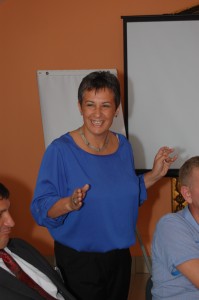 Leadership Academy
Leadership Academy
Program Developer and Trainer of trainers, Council of Europe, since 2011
The program offers nine month long education for local government leaders. Its central theme is that every person has leadership capabilities that can be released and enhanced. One aim of the program is to offer a framework for the analysis of the actual municipal performance and initiate reflection on possible improvements. The other, and key, purpose of the program is to assist leaders to learn how to say yes to challenges, how to release leadership capacities in others and how to create an environment in which others want to work with them, share their purpose and follow their lead. This is a multi-country program of the Council of Europe. In 2011 spring with a colleague we trained the teams of trainers for five countries. The plan is that I will lead the Hungarian adaptation and delivery of the program and assist some of the other country teams in their adaptation and delivery.
Public participation in multi-ethnic local governments
Research and course manual writing. LGI/Open Society Institute, 2011
In jurisdictions where different ethnic groups share a place where they live, and the conceptualization of some local affairs is differentiated along ethnic lines participation of stakeholders in the policy process is essential to building sustainable and just local societies. The manual discusses how public participation can be de-signed and managed in multi-ethnic contexts in a manner that it can support the implementation of the policy goals set by the local political community. The manual presents the key terms and concepts and the most important body of practical knowledge on local public participation, and examines the specific consequences of the multi-ethnic environment on the design and implementation of participatory mechanisms.
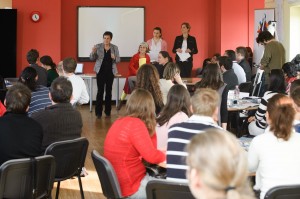 Built heritage in local governance
Built heritage in local governance
Distance learning course devel-opment. ISES (In-stitute for European and Social Studies), 2011
Distance learning course in the frame of the post graduate Cultural Heritage Management Program of the Institute for Social & European Studies (ISES) and Corvinus University, Budapest. The purpose of the course is to discuss the implications of heritage and conservation practices to the local context, with focus on the social and political dimen-sions, and to discuss deliberative democratic processes that can support the heritage management. Key themes are the role of heritage in place making and the negotiations related to heritage within the local political community. By the end of the course students become able to recognize the possibilities that different participatory mechanisms can offer for the negotiation and collaboration of stakeholders, and with this knowledge and skills they will improve their capacity to engage in effective and collaborative negotiation with other stakeholders about the local built heritage.
Public participation in local governance
Course designer and trainer, Academy for Mayors, 2010-2011
The Academy for Mayors was established by the Corvinus University and the Associa-tion of Hungarian Local governments with the support offered by the Norwegian bilateral funds. Within the frame of the Academy the elected decision makers receive a one year long post graduate education. After the success of our mediation course designed for the first year of the program, I received an invitation to elaborate a module on public participation. The course is focused on those practical considerations and competencies that decision makers need to have in order to make wise decisions on and fulfill their role in local participatory processes. The discussion of the basic concepts and methods are connected to concrete cases and widely used practices. The cases are also the starting points for the discussion of possible decision criteria, dilemmas, costs and benefits of participatory processes.
Mediation: Conflict management and resolution
Course designer and trainer, Academy for Mayors, 2009-2011
The Academy for Mayors was established by the Corvinus University and the Association of Hungarian Local governments with the support offered by the Norwegian bilateral funds. Within the frame of the Academy Mayors a one year long post graduate education is offered for the elected decision makers. During the first year of the program I was commissioned (with a colleague) to elaborate a module on the management of conflicts related to local issues and inter-municipal disputes. The tasks were the preparation of a textbook for the participants and a teaching method for conflict resolution. The module was based on experience-based training technique. Its components included, practical exercises, skill building elements, case study analysis, discussions and short conceptual and knowledge components. After the success of the course during the first year, we recieved an invitation for an extended version for the second year.
Mentoring Municipalities in Roma Education
Lead expert in training design and trainer of trainers, Open So-ciety Insti-tute and Roma Education Fund, 2010
The Roma Education Fund supports the DILS project whose goal is to support local governments and stakeholders in developing and implementing an integrated enrollment policy and system support for the successful education of Roma children – from the preparatory pre-school education onwards – incorporated in the Local Action Plans for Roma education. One component of the program was to train Mentors to work with local governments and support the elaboration and implementation of integration strategies and policies. My role was to supervise the design and elaboration of the materials for the training of the mentors, and to train the Serbian speaking trainers who were commissioned with the training of mentors.
Heritage protection in urban management.
Course designer and presenter, Institute for European and Social Studies, 2010
I designed and held a course on urban management in the frame of the post-graduate degree program in Heritage Protection and Sustainable Development. The course offered a comprehensive introduction to the goals, tasks and challenges of urban management and discussed the key issues related to the possibilities for heritage protection within urban management. The aim of the course was to help the students in situating heritage protection within the complexity urban management and in better understanding the views of other professions active in the urban arena. The course was designed to enhance the competency of the students to understand evaluate policy and strategy alternatives and to argument for desirable solutions.) .
Training of councilors.
Program dedsigner and trainer of trainers, Hungarian Association of Local Governments, 2010
In the frame of a cooperation between the Hungarian and Norwegian Association of Local Governments I am responsible for the elaboration of a training for the new local councilors who will be elected in autumn. The program will develop a training program, and train a first group of 40 trainers to deliver the trainings for the newly elected local assembly members. The assembly members of one local government will be trained together. Training will help the participants to acquire the requisite knowledge, the appropriate attitude and the necessary skills that are required to foster decentralisation and make municipal administration and management a success. My role was to design the training program and train the first group of trainers and assemblies.
Minority rights and local governance.
Course designer and trainer, Open Society Institute, Management of Multi-Ethnic Communities Program, 2010
This course focused on local political opportunities (and limitations) in the ac-commodation of the needs and aspirations of ethno cultural minorities with a special interest in the normative dimension. This course centered on ‘public participation’, since this is regarded as a foundational minority right, that is a right that is essential for the realization of other minority rights. New element was in the course, compared to earlier our courses on the topic the distinction between issue based participation and participatory institution building, and the deeper analysis of the relation between participatory institution building and the process of international and local norm formation process.
Management of Urban Change in Transition cities – summer university course
Course designer and course director for LGI, in Hungary for international audience, Central European University, Hungary, 2009
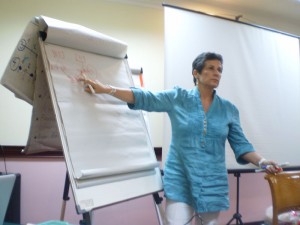 The summer university is organized for an international audience of academics and decision makers who come form various World regions. In order to exploit the diversity of backgrounds and experiences the course is led in a highly interactive manner creating a balance among components that are knowledge pieces, field visits, practical exercises and discussions. The main areas covered during the course are Sustainable communities, Strategic development planning, Urban planning, Participatory processes, Area based development, Territorial Conflicts and their management, Real estate markets, Horizontal and vertical coordination in development planning.
The summer university is organized for an international audience of academics and decision makers who come form various World regions. In order to exploit the diversity of backgrounds and experiences the course is led in a highly interactive manner creating a balance among components that are knowledge pieces, field visits, practical exercises and discussions. The main areas covered during the course are Sustainable communities, Strategic development planning, Urban planning, Participatory processes, Area based development, Territorial Conflicts and their management, Real estate markets, Horizontal and vertical coordination in development planning.
Facilitating better local governance of oil revenues for improved economic and social development – training and coaching
Watch Consultant/trainer/coach of local team, LGI/Revenue, Peru, 2009
This project aims to assist local governments, the Association of Local Governments and NGOs in Peru to avoid the resource curse by working at the local level to advocate for extractive revenue transparency; providing technical assistance and capacity building to stakeholders and helping to establish participatory local planning and budgeting processes; and strengthen civil society and citizens to monitor government service delivery effectively. Ms Pallai’s task is capacity building for the participatory planning process, advising the process design for governmental organizations and NGOs who lead the process.
Ethnic Diversity, Community Conflict and Urban Development – training course
Course designer and course director for LGI, in Hungary for international audience Local Government Initiative of the Open Society Institute Hungary, 2008
The training was designed and delivered in multiple occasions by Ms Pallai together with Ana Vasilache of FLDP. After the introduction of the key concepts related to the management of ethnic diversity, the possible impact of ethnic diversity was discussed on the application of various policy development, strategic planning and conflict management approaches. The course concluded with application exercises where participants could develop strategies to establish inclusive local public policy-making, urban development planning processes in multiethnic communities.
Facilitating better local governance of oil revenues for improved economic and social development – training and coaching
Consultant/trainer/Coach of local team for LGI/Revenue Watch , Indonesia, 2008-2009
This project aims to assist local governments in Indonesia to avoid the resource curse by working at the local level to advocate for oil revenue transparency; providing technical assistance and capacity building to stakeholders and helping to establish participatory local planning and budgeting processes; and strengthen civil society and citizens to monitor government service delivery effectively. Ms Pallai’s task is capacity building for the participatory planning process, advising the process design and implementation, and training and coaching the NGOs who lead the process.
Managing Conflict and Urban Development in Multi-ethnic Communities – training course
Course designer and trainer for LGI, in Hungary for international audience Local Government Initiative of the Open Society Institute, Hungary, 2008
The training was designed and delivered by Ms Pallai together with Ana Vasilache of FLDP. It discussed the main concepts related to diversity, identity and ethnicity, stereotypes, discrimination and ethnic conflict. It discussed public policy formulation, urban development planning and and participation as vechicles for conflict resolution in multiethnic communities. It increased participants’ capacity to analyze conflict situations in multiethnic communities resulting from urban development policies/decisions and (b) identify and use the appropriate strategies in order to manage these situations, such as principled negotiation, multiparty mediation and facilitation of participatory processes. The trainings goal was to deepen participants’ understanding about inclusive local public policy-making, in the field of urban development in multiethnic communities.
Public policy in Multi-ethnic Communities – Training course
Course designer and trainer for LGI, in Hungary for international audience, Local Government Initiative of the Open Society Institute, Hungary, 2008
Within the frame of the Managing Multi-ethnic Communities Program, Ms. Pallai together with Zsuzsa Katona designed and presented a training program that discussed the key issues related to the integration of ethnic diversity in the local policy process. The training had an awareness raising component focused on issues related to ethnic diversity, identity, formation, stereotyping, discrimination and the need for diversity management. The policy related component discussed policy development as an encounter among groups conditioned by past experiences, and discussed key impacting factors, like biases, representation, communication and problem definition.
Strategy workshop – Master-course on local leadership. – training
Course designer and trainer for F 38 Ltd. and Urbanissimus, Hungary, 2007-2008
The workshop is a private initiative of Ms Pallai. The goal is to propagate and facilitate the application of governance approaches to local leadership and participatory city strategy processes. With interactive adult learning methodology, the workshop urges local leaders to reflection on their leadership approaches, practices and possibilities. The program consists of a series of two days events where participants learn about new approaches and cases studies and appropriate the new knowledge through guided discussions and application exercises. The program was first organized in 2007 with the participation of 16 Mayors and some appointed leaders of important Hungarian settlements. Since, as a response to the demand expressed, it has been twice repeated for the colleagues of the alumni and for leaders of other local governments.
Serving the Public – Responding to Challenges of Promoting Social Justice through Local Public Service Delivery in Wider Europe, Workshop designed and delivered by Petra Kovács and Katalin Pallai, Hungary (2008)
Course designer and trainer for Open Society Institute – LGI, Hungary, 2008
This innovative, international workshop aims to assist mayors and other senior decision-makers in local governments and public administrations from Central and South East Europe to design and implement local service delivery policies that conform to European standards of social integration. The workshop seeks to promote change in approaches to policy development and emphasize the role of governments in creating more just and inclusive societies.
Public Management of Urban Change in Transition Cities, organized by the SUN Program of the Central European University (2008)
Course designer and course director for Central European University – SUN, Hungary, 2008
The course is a new version of earlier local strategy courses designed by s.S Pallai for the CEU- SUN program. This version takes a new approach and content. The content is exclusively focused on the city strategy process: it discusses the urban strategy, policy and physical planning process, the strategy design options and tools, examples of city and area strategies, and stakeholder involvement. The teaching method is based on new approaches of adult learning.
Policy development and advocacy trainings
Designer and trainer for ISSA, Kosovo, 2007
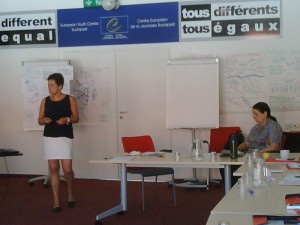 The project offered a series of highly interactive and practical trainings for NGOs on policy development and advocacy. The trainings were designed and delivered by Ms Pallai. The trainings improved participants’ understanding of the policy process, stakeholder analysis and policy development; taught approaches for mapping the context and alternatives; and enhanced skills needed for effective policy development and advocacy.
The project offered a series of highly interactive and practical trainings for NGOs on policy development and advocacy. The trainings were designed and delivered by Ms Pallai. The trainings improved participants’ understanding of the policy process, stakeholder analysis and policy development; taught approaches for mapping the context and alternatives; and enhanced skills needed for effective policy development and advocacy.
Policy presentation training
Designer and trainer for Council of Europe, Various countries of SEE, 2007-ongoing
Trainings, designed and delivered by Ms Pallai offered introduction to policy development and policy presentation for local governments. Participants improved their understanding of policy development and improved their skills related to effective presentation of policies to decision makers. The training encouraged a shift from the traditional “anecdotal style” of policy communication to a concise, evidence-based and argumented approach in a highly interactive and practical training format.
Power sharing in Multi-ethnic Communities – training course
Designer and trainer for LGI, Hungary, 2007
Within the frame of the Managing Multi-ethnic Communities Program, Ms. Pallai together with Petra Kovacs designed and presented a training program that discusses power sharing possibilities at the local level. The course is specifically targeted for leaders of multi-ethnic communities. It puts power sharing in the context of participatory arrangements and offers both conceptual underpinning and technical skills for designing power sharing arrangements.
Strategic Approach to Governance at the Local Level – the New Paradigm
Team leader for LGI and Urbanissimus, Hungary, 2006-2007
Ms. Pallai recruited a team of leading decision makers and senior local government management and development professionals to elaborate approaches to local governance that are applicable in the CEE context. Ms. Pallai also designed a series of workshops for senior practitioners where the team presented their conclusions – the new paradigm. Added value of the project was to produce innovations for post-communist transformation of local government management and local strategic planning processes that could be applicable in the SEE and fSU regions.
Expert on Strategic Planning and Management Capacity Building for High Ranking Civil Servants
International expert for Ramboll on EU Project, Romania, 2006-2007
Ms. Pallai was commissioned to design a strategic planning and Management training program for High Ranking Civil Servants, train Romanian trainers to present the course and supervise the training of 150 officials. The training is built on the experimental learning cycle, leading trainees through a series of experiences with strategic methods and facilitating the drawing of conceptual conclusions.
Service delivery in Multi-ethnic Communities – Training Program
Designer and trainer for LGI, in Hungary for international audiance, 2005-2008
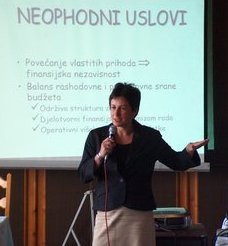 This was a multi year program where Ms. Pallai together with a co-trainer designed and presented a service delivery training program specifically targeted for leaders of multi-ethnic communities. The participants analyzed the typical conflicts resulting from the application of mainstream concepts for service delivery within multi-ethnic environments, and discussed approaches for service delivery from the angle of taming or managing these conflicts. It encouraged leaders to think out of the box of standard mainstream solutions and make an effort to design policies that can accommodate local diversity and the tensions among various groups having different histories, capabilities and identities.
This was a multi year program where Ms. Pallai together with a co-trainer designed and presented a service delivery training program specifically targeted for leaders of multi-ethnic communities. The participants analyzed the typical conflicts resulting from the application of mainstream concepts for service delivery within multi-ethnic environments, and discussed approaches for service delivery from the angle of taming or managing these conflicts. It encouraged leaders to think out of the box of standard mainstream solutions and make an effort to design policies that can accommodate local diversity and the tensions among various groups having different histories, capabilities and identities.
Strategic Planning as City Leadership and Management Tool, organized by UNDP Montenegro
Designer and course director for UNDP, Montenegro, 2005
The course offered understanding on local leadership and strategy based on an approach according to the new governance paradigm of public management. The course offered an integrated approach to community leadership, strategy, participation and communication; and presented models for strategic process design and practices to encourage and steer community efforts.
Strategic Approach to Urban Challenges, organized by the Summer University Program of the Central European University
Course designer and director for Central European University, Hungary with CEE and SEE regional outreach, 2004-2007
The course two weeks long course is designed for PhDs and university faculty who teach similar subjects or intend to design courses with strategic planning and management component. The course presents approaches to strategic planning and management and discusses the specific application challenges in the public sector. It builds a clear conceptual framework to design and assess strategies and uses exercises and cases studies from the region and beyond to illustrate the concepts presented.
Local Economic Development Program
Expert and trainer for IFC & OSI/LGI, Kosovo, 2002
The project is a pilot training programme for municipal officials in Kosovo, run in co-operation World Bank, IFC and OSI/LGI. The goal of the project is to support members of local governments and community based NGOs to provide leadership role in creation of enabling environment for SMEs. The program assisted selected local governments in Kosovo to set up multi stakeholder groups for participatory Local Economic Development Planning. It offered training and technical assistance to the local governments and multi stakeholder groups, and trained project staff to lead the process and be capable to maintain the dialogue after the end of the project. Ms Pallai was invited to to contribute to the Local Strategic Planning component of the project training the local teams.
Faculty, Core Course On Intergovernmental Finance and Local Financial Management, organized by WBI
Faculty member of World Bank Institute, Various countries, 1993-2004
Faculty, teaching different subjects on various occasions and in various country presentations of the core course of WBI in countries that were in transformation form command to market economy and democracy. In this position Ms Pallai worked in Kazashtan, Armenia, Kyrgyzstan, Ivory Cost, Turkey, and participated in international events and training courses organized for the CEE and SEE region.
Planning and Financing Cities in Transition: The Strategic Approach, organized by the World Bank Institute and the Local Government and Public Policy Initiative of the Open Society Institute
Course designer and director for World Bank Institute and Local Government Initiative, Hungary with CEE and SEE regional outreach, 2003-2004
The course was a ten-day executive training course, jointly developed by the World Bank Institute and LGI. The course presented an integrated approach to meet urban challenges. It showed how urban development and financing strategies can and should be integrated in the overall urban strategy and its implementation. It used exercises and it built on various cases studies from the region and beyond to illustrate the concepts presented. Ms Pallai was commissioned to design the course and direct it.
World Bank Institute Urban and City Management course
Course director and adapter for World Bank Institute and Local Government Initiative, Hungary with CEE and SEE regional outreach, 1999-2001
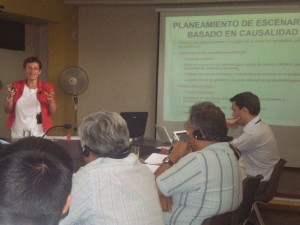 The Urban Management course was a two-three weeks long executive training program that aimed to assist decision-makers and practitioners in designing and implementing better urban policies through: (1) deepening the understanding of the complexity of urban issues confronting the region, and (2) exposing the participants to new strategies, tools and practices to effectively address these issues. Ms. Pallai was commissioned by WBI to adapt the WBI core course for the needs of post-communist transition cities and direct the courses organized in the region.
The Urban Management course was a two-three weeks long executive training program that aimed to assist decision-makers and practitioners in designing and implementing better urban policies through: (1) deepening the understanding of the complexity of urban issues confronting the region, and (2) exposing the participants to new strategies, tools and practices to effectively address these issues. Ms. Pallai was commissioned by WBI to adapt the WBI core course for the needs of post-communist transition cities and direct the courses organized in the region.
Reform of Budgeting of Hungarian Local Governments
Expert and trainer for USAID, Hungary, 1996-1999
The training program was organized for Hungarian municipalities who aimed to introduce program budgeting. Officials from these municipalities received a year long training consisting of general education on planning and budgeting and of assistance in the introduction of the first program budgets. Ms Pallai’s role was to teach strategic and general planning, decision making tools and explain the relation of comprehensive, sectoral and financial planning.
Economics for Leaders Program
Adapter and trainer for FTE (Universtity of California), Hungary, 1993-1999
The program is a typical leadership training created for young adults that focuses on the development of personal skills in team building and builds capacities in team working. After a specific education received in the US Ms Pallai organized the Hungarian trainings and lead them as the trainer of the program.
